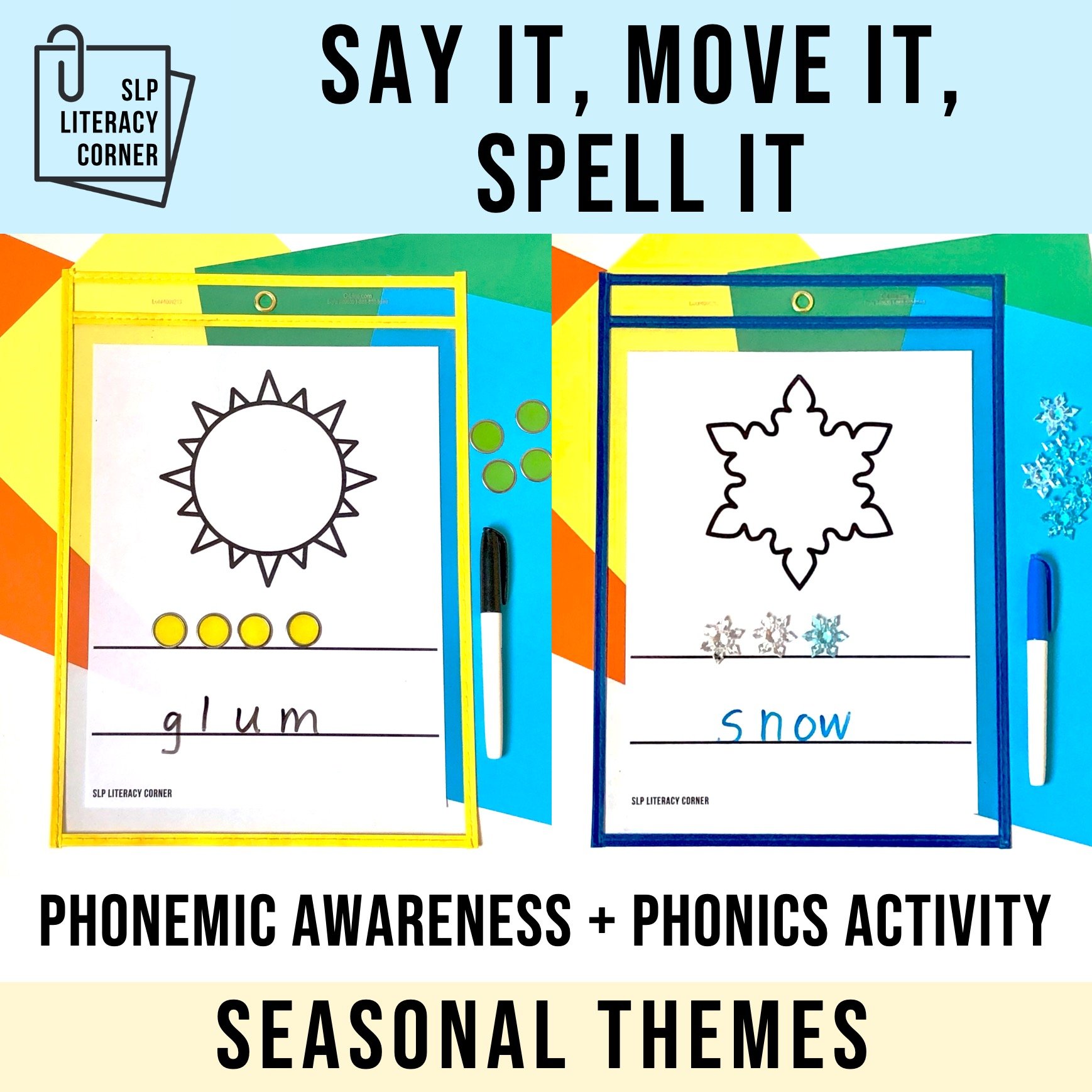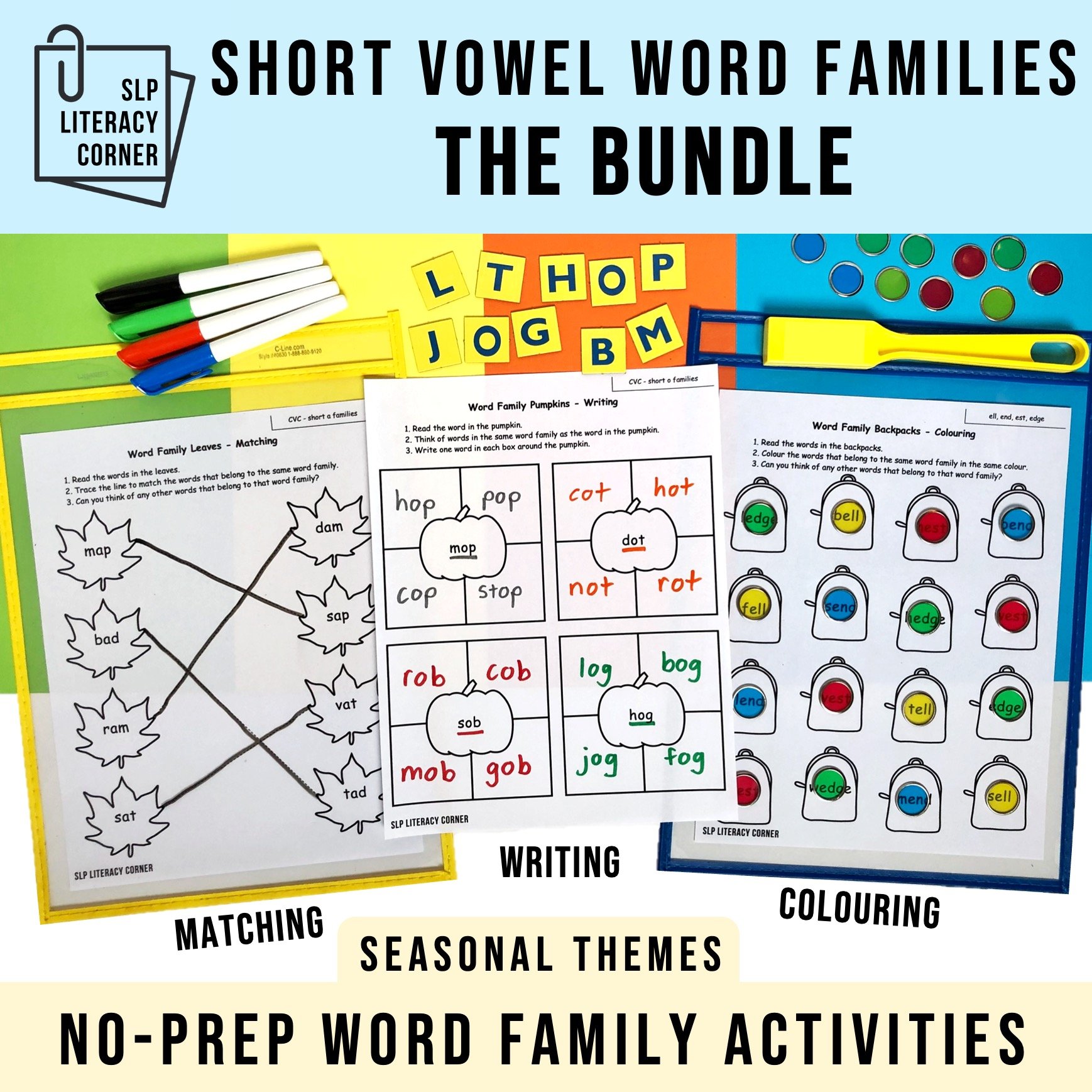What is Phonological Awareness?
Written by: Brianna Guild, MHSc SLP(C)
Date: April 5, 2023
Phonological awareness is the ability to recognize and manipulate the sounds in spoken language, including words in a sentence, syllables in words, and sounds in words. It is a foundational skill for both reading and writing, and is a predictor of early reading success.
Multiple skills fall under the phonological awareness umbrella:
1. Word Awareness: includes skills such as identifying or counting the words in sentences presented orally (e.g., the rainbow is beautiful = 4 words).
2. Syllable Awareness: the ability to focus on and manipulate syllables in spoken words. It includes skills such as counting, isolating, segmenting, blending, and manipulating syllables in a word. A syllable is a unit of a word that has 1 vowel sound (e.g., rain = 1 syllable, umbrella = 3 syllables).
3. Alliteration: identifying and generating words with the same initial letter/sound (e.g., rain runs rapidly).
4. Rhymes: identifying and generating words with the same ending sound, or rime (e.g., rain, pain, main).
5. Onset and Rime: identifying and manipulating the onset and rime in words. The onset of a word is the initial consonant(s) (e.g., r in rain, dr in drop), and the rime is the string of letters that follow — the vowel and final consonant(s) (e.g., ain in rain, op in drop).
6. Phonemic Awareness: the ability to focus on and manipulate individual sounds (phonemes) in spoken words. It is a specific type of phonological awareness skill and includes:
Phoneme Isolation: isolating or identifying individual phonemes in words (e.g., the initial phoneme in rain is /r/).
Phoneme Blending: putting phonemes together to make a word (e.g., the phonemes /r/ /eɪ/ /n/ make the word rain).
Phoneme Segmenting: pulling a word apart into individual phonemes (e.g., rain is broken down into the 3 phonemes /r/ /eɪ/ /n/).
Phoneme Manipulation: changing or moving the phonemes in a word (e.g., if we say the word rain and then change the /r/ to a /p/, the word is pain). Phoneme manipulation includes adding, deleting, or substituting phonemes.
The terms phonological awareness and phonemic awareness are brought up often during conversations about the science of reading and literacy instruction. People sometimes confuse these terms or use them interchangeably, even though they are two distinct terms.
I hope this blog post helps you understand that phonological awareness is an umbrella term that encompasses multiple skills, one of which is phonemic awareness.
Join the SLP Literacy Corner email newsletter to get access to exclusive free resources, such as handouts with activity ideas for 5 components of literacy, including phonological awareness. Sign up here!
If you're looking for phonological awareness activities, check these out:
References:
National Institute of Child Health and Human Development (NICHD) and U.S. Department of Education. (2000, April). Report of the National Reading Panel - Teaching Children to Read: An Evidence-Based Assessment of the Scientific Research Literature on Reading and Its Implications for Reading Instruction. https://www.nichd.nih.gov/sites/default/files/publications/pubs/nrp/Documents/report.pdf
Blevins, W. (2016). A Fresh Look at Phonics: Common Causes of Failure and 7 Ingredients for Success. Corwin Press Inc.
Lindsey, J. B. (2022). Reading Above the Fray: Reliable, Research-Based Routines for Developing Decoding Skills. Scholastic Professional.






